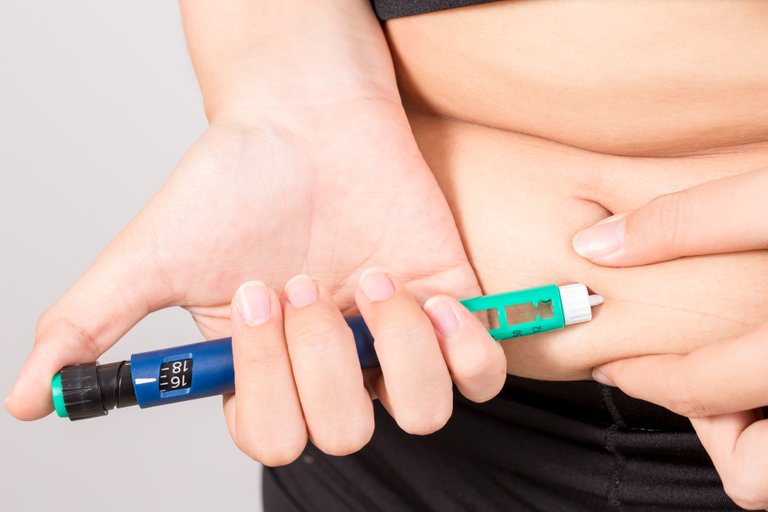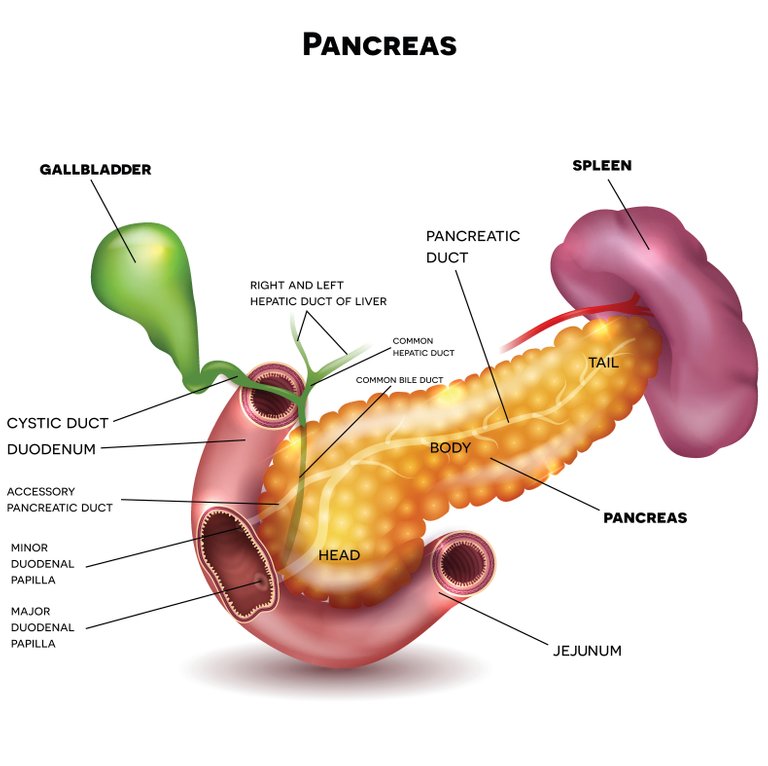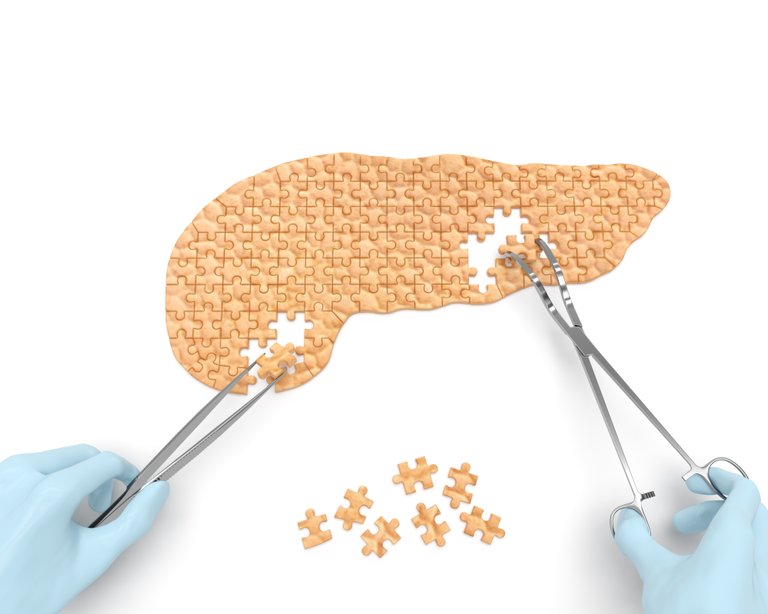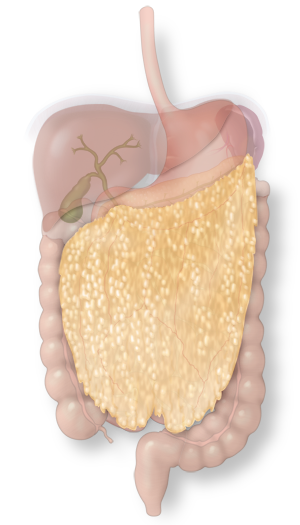
Introduction
I came across an interesting case report in the NEJM [1] from a couple of weeks ago.

As someone who suffers from Type I diabetes and has to take insulin I am always on the lookout for new ways of treating this condition.
This case report involves an allogeneic transplant (see explanation below) of Beta islet cells into the omentum of a 43 year old woman.
In essence this is like creating an artificial pancreas to replace the woman's original (non-functioning pancreas).
It appears that in this case the transplant was successful and the woman was able to discontinue insulin after 17 days.
Normal insulin function was maintained in this case for 12 months and the patient did not suffer from any hypoglycaemic episodes (the main risk from taking insulin).
It appears that this report involves a patient who is enrolled in a larger ongoing study of this technique.
It is preliminary information and that is why it is being presented in the form of a letter in the NEJM.
The report is quite short and is free to read (or download) here. If you are interested in the subject I would recommend giving it a read.
Explanation
The Beta islet cells are a particular type of cell in the pancreas that produce insulin and either die off or stop functioning in Type I diabetes.
An allogeneic transplant means that it is taken from a donor (usually someone who is immunologically compatible like a sibling).
We don't have any specific details of who the donor was in this case - I suspect that kind of information will come in future data.
Due to the use of cells from another person some sort of immunosuppression needs to be used to stop the recipient's immune system from attacking the cells.
A number of agents were used (see the paper for details) and one of them had to be changed as it was causing hair loss.
The islet cells in this case were transplanted into the omentum. This is a fatty support structure that holds the intestines in place.
In the past it was assumed that the omentum was merely a place for storing fat and giving structural support to the bowels.
In recent years it has become apparent that it has a variety of roles in both immune and hormonal function.
It is also relatively easy to access and so makes a logical site for implantation.
Why is this so interesting?
Previous attempts at transplantation involved a full pancreatic transplantation with the obvious risk of full blown abdominal surgery.

Experimental attempts at cellular implantation in the past have involved more risky placement within the liver which is more difficult to access and has greater risks for complications (e.g. bleeding).
The omentum appears to be a safer and easier to access site, which also has a good blood supply. It is also close in location to the liver and pancreas from an anatomical standpoint.
Although this report doesn't get into the details of how the implantation was done it could in theory be possible to do this sort of implantation with minimally invasive surgery - possibly even via injection.
That could reduce or even eliminate general anaesthetic risk, along with reducing the risks of bleeding and infection.
If this pans out as a technique it could eventually be a case of booking in to your local clinic or hospital to have it done, and going home the same day.
Notes of Caution
I often talk about small sample sizes. This is a case report on a sample of one!
It is a preliminary report and we must always be cautious of reading too much into it, no matter how promising it must seem.
We don't have much details such as where the transplant came from, exactly how it was done etc.

There is also comparatively little information about the patient - perhaps there is something else about this patient that lead to the recovery of insulin function that had nothing to do with the transplant?
For example most (but not all) cases of Type I Diabetes are thought to be due to autoimmunity.
It is possible that the immunosuppression allowed her own existing pancreatic beta cells to recover and start functioning again.
-The transplant itself may be a kind of "red herring" here.
We must also consider the risks to general health from immunosuppression.
The ideal thing would be to isolate still functioning beta islet cells (or reprogram stem cells) from the patient herself and implant those.
This would still not be perfect though because if the cause of the diabetes is auto-immunity, some kind of immunosuppression would still be required to prevent the new cells being damaged or destroyed.
It could work very well for those who have non-autoimmune diabetes though.
It should also be noted that the patient was on a low carbohydrate diet and a regular exercise regime - it is not clear how well it would work in the absence of these measures.
We will have to wait for results from the full study to make further assessments.
Conclusion

This is certainly exciting news and I look forward to seeing the full results from the study.
We should not get ahead of ourselves though.
As the authors themselves state at the end:
Data from long-term follow-up and regarding additional omental islet transplantations are lacking. The current study is ongoing to determine the safety and long-term feasibility of this strategy of islet transplantation.
Before You Go - Don't Forget to Vote:
Vote for STEEM in the BTCC Poll

Click image to go to the Tweet.
References
- Baidal, David A., Camillo Ricordi, Dora M. Berman, Ana Alvarez, Nathalia Padilla, Gaetano Ciancio, Elina Linetsky, Antonello Pileggi, and Rodolfo Alejandro. 2017. “Bioengineering of an Intraabdominal Endocrine Pancreas.” The New England Journal of Medicine 376 (19): 1887–89.
Thank you for reading



It is well known that the etiology of type 1 diabetes remains unknown. The best studied factor is the autoimmune: T lymphocytes attack the beta cells in the pancreatic islets. As a trigger, there is usually a history of a previous viral infection (difficult to determine). Regarding this, the question arises to me about the following: After the original beta cells were destroyed, the T lymphocytes could develop a new attack on the transplanted cells? It will be interesting to know the results in the medium and long term. Hmmmmm... Interesting.
Excellent point and that is also a potential confounder here - was the recovery in function due to the immunosuppression restoring original pancreatic function, the transplant or a combination of the two? We need more research and there is unlikely to be an easy solution.
As a medical doctor and Type I diabetic myself, I really appreciate you bringing research like this to the Steem platform. My feelings: I think that people who have very poor control should look at this as a great opportunity.
In medicine you always have to weigh the potential harm with the potential benefit.
If someone has an A1C (essentially an approximation of a three-month average blood sugar) of 12, then immunosuppressive therapy is probably better than the poor blood sugar control.
However, if someone has an A1C below 7 and a much lower chance of diabetic complications, then why would someone want to subject themselves to immunosuppressive therapy, which could lead to cancer and infections?
In my opinion, the choice to get the transplant should be based on blood sugar control versus an easier life-style. For me, I have adapted to the diabetic lifestyle, and I don't even really have to think about it anymore. If we can prevent immunosuppressive therapy, then yes....that is the dream haha.
Yes and who knows in the future we may have means of reprogramming the immune system to reverse any autoimmunity and future transplants may involve the use of reprogrammed host cells. That way there would be no need for immunosuppression at all.
That is the dream man! Time will tell.
That is why I added my own research as to how beta cells can be regenerated. Maybe the combination of manual regeneration from fasting/refeeding and immunosuppressive therapy might reverse type 1. It certainly is shown to help with type 2.
Great article! i dont know anyone personally who has diabetes but i heard that going vegan is the best and fastest way to cure diabetes!
It won't cure type I diabetes but might help with type II as long as you keep the carbs under control.
yeah of course! i think most people should just eat healthy and lead a healthier life and avoid refined food, bad carbs and SUGAR especially hidden sugars. They are literally in everything, same amount of sugar in a glass of juice like in a coke and yogurt!
Yes sugar is everywhere!
Interesting experiment thanks for highlighting this @thecryptofiend its something I am curious about as many people I know have diabetis and may get it in future.
Cool thanks :)
I don't know much about diabetes as I am not a medical person, nor have I any Interest In knowing any medical Terminaologies or what they are, but if we are somewhere near Cure of diabetes, I feel very happy.
One of my relatives have diabetes, he was very foodie, but after getting effected by it a few years ago, he has to take Injections before and after having every meal.
Also sometimes his condition gets worse and he has an attack and I get scared to see that.
Also My neighbour has diabetes and he is only 14.
I feel very sad for both of them. They are somewhat confined in living their lives and eating to a limited things and In limited amount.
If they have found any cure, I wwould be very much happy to see them living fully again.
It depends on the type of diabetes though. This would only help with type I.
Well, I don't know what type it is, bit If they have found a cure on Type 1, surely they would be looking forward to eradicate the disease and find the cure of type 2.
Yes they are working on it for sure and I think we are getting closer. There is one thing that can cure type 2 in some cases - gastric bypass surgery - obviously it is a very drastic treatment (and risky) though.
I think that's why many people don't go for it.
Resteem This Post
Thanks!
my pleasure my brother
I am a patient of type I diabetes. Insulin twice in the morning And evening
Many of my friends told me some of the primitives for treatment and you have not benefited and are currently more than 8 years and I use insulin morning and evening
When you measure the sugar Bonyo to measure blood sugar
Although I was planning to buy a pump, the nature of the work and the conditions did not allow it
I hope that will be solved forHello my friend @thecryptofiend
I hope so too but it will be at least 5-10 years before we get this as patients if it works.
Yes, I agree with you my friend
I try a lot to be a moderate sugar level so there are no complications even if things have been created to help be so talented
Really fascinating. Diabetes affects so many people including some of my family . I hope progress is made!
BTW I just wrote this article about the Ethereal Summit, I was hoping you could give it a read and see what you think. I value your opinion on these matters and it would be nice to get some feedback on some of-my analysis to see if others are brought to the same conclusions.
Cheers https://steemit.com/cryptocurrency/@digicrypt/ethereal-summit-2017-complete-analysis
OK will do when I have a moment.
Thanks, I really appreciate it!
So if you have a fig tree you might want to use it's leaves. If you don't have a fig tree maybe you might want to buy one and plant it in the ground or in a pot.I was looking at my fig tree and wondering if the leaves of the fig tree were edible. I found this article that has to do with diabetes: http://www.naturalnews.com/027050_figs_health_water.html
Interesting thanks!
i resteem this post beacause very good
Thanks!
I WILL FOLLOW YOU NOW :)
upvote and rs for you...
The Fasting Mimicing Diet also holds promsie. I would not say any of these are a cure but it has been shown that beta cells in the pancreas do regenerate and that this process can be kick started by going into starvation and refeed cycles. By not eating for a few days, and then slowly eating again, 700 calories, 800 calories, until day 5 where you refeed completely with normal eating. It is good to do this cycle once a month but as type 1 it is very dangerous and would require medical supervision. Type 2 diabetics might be able to get away with not eating for a few days depending on how severe it is such as if they require insulin injections or not. It is also safe as far as I know to consume foods like avocados exclusively, which don't have much in it to raise blood sugar, and avoid protein, because fat produces ketones, but again it's something to do very carefully.
References
Thanks for the links :) Yes ketosis can be particularly risky in type I.
good work. i liked. thank you for the information.
I saw this article. However I'm not all that sure about surgery and an artificial implant.
I've seen some research done into intermittent fasting once a month to reset your pancreas. Basically the idea is to fast for 5 days monthly. 1000 calories on day one and 750 calories for the rest of the 4 days. It's supposed to help you regain natural insulin production.
Also look into the effects of cinnamon on the body. Cinnamon lowers blood sugar in the body. Has anti inflammatory properties as well. I've been taking cinnamon, lemon and honey myself to help me lose weight. And it's been working.
https://steemit.com/health/@grey580/lemon-honey-cinnamon-water-to-help-lose-weight
I've read the same thing, fasting to re-set the pancreas.
On a personal level, I've managed to cure type 2 diabetes naturally over a period of five months. I exercise regularly but the main factor was diet. I consume Cinnamon daily, along with several other foods know to lower blood sugar.
I avoid bread, sugar and artificial sweeteners totally and try to avoid processed food as much as possible.
Fantastic.
I was told that my sugar was high when I was last in the hospital. So I've changed my diet completely and began to exercise. I do cinnamon daily as well in my prepared drink. Got my wife to use cinnamon as well in her daily smoothy.
Other foods which I eat daily include 4 eggs, tuna, rolled oats, honey, oysters, cacao powder, tumeric, ginger, pear and apple, okra, broccoli, walnuts, pumpkin seeds, brazil nuts, and sometimes spinach.
I hope this helps you @grey580.
I do egg whites usually. Not into fish all that much. I like oatmeal. I do honey in my diet drink.
I take tumeric pills daily. ginger on occasion. pears and apples I gotta be careful with because of my UC. okra not a fan. broccoli i do when we have veggies. Spinach when I"m in the mood. https://steemit.com/health/@grey580/lemon-honey-cinnamon-water-to-help-lose-weight
In addition I will be doing quinoa again soon instead of rice.
Egg yolk contains essential minerals and proteins. People told me not to eat so many eggs but I knew their information was dated and false. My most recent blood tesf proved the point. My cholesterol levels and blood sugar both dropped back to normal.
As for the cinnamon. I put that in my rolled oats every morning, along with cacao powder and honey. It's a very tasty meal and also extremely healthy.
You may want to look into maple syrup as well.. it has many beneficial properties.
https://www.sciencedaily.com/releases/2010/03/100321182924.htm
"Several of these anti-oxidant compounds newly identified in maple syrup are also reported to have anti-cancer, anti-bacterial and anti-diabetic properties."
Yes I have heard similar things but you can't restore pancreatic function in type 1 by doing that. It is more useful in type 2. Also this is not an artificial implant.
thank you for this very interesting report
Whatever happened to eating well and exercising regularly? I know a slew of people doing just that and regulating their type 2 diabetes...
Everyone should do that anyway but the problem with Type I diabetes is that you don't produce enough insulin (sometimes none at all). Diet and exercise can't fix your pancreas if the cells have been destroyed.
I guess, I've just never been a fervent advocate to pharmaceuticals.
It is good to be cautious I think.
I have a woman who is sick with type 1 diabetes and should take the dose every day and only if she will fall and fall so I keep myself and avoid the causes leading to diabetes
No really understanding what you are trying to say there.
Inspiring! I hope this will benefit multitudes of people out there that are insulin dependent! (:
Yes me too.
Wow!....wish this had been discovered before my aunt passed from Chronic Diabetes.
Depends what type she had - also we don't know the results of the final study but it is certainly promising!
Will hope to read the final result of the research from you anyways....
Thanks!
Very inspired. I have much to learn from you @thecrytofiend. Because I'm new here and still need guidance.
Thank you:)
Please guidance for me, the criticism and suggestions I need
What is the problem?
No problem, just I'm new here. If something goes wrong with my post, please correct it.
I can't correct your posts - only you can.
I mean please guidance, criticism and suggestions.
Any limits on use when body defenses are on the low side (organ transplant patient)
It is too early to say for sure but I don't think so - this is an extra transplant so there could potentially be more risks.
have a beautiful day.
Reesteemit the post to spread the scare of our beloved cryptomonedaExcellent work dear friend @thecryptofiend very interesting and topical, it is of public knowledge that more and more cases of diabetes, thank you very much for sharing all this data.
Thanks!
Awesome post as I too am type 1 and I am always looking for the cure! I hope it comes soon as I am sure that this old body won't last too long without it. I added you to my "Following" as well. DR
@digestingreality
Thanks!
Excellent blog!
Thanks!
I'm diabetes,this is very helpful for me.
Glad you found it helpful!
Thanks for the great piece. A bit complicated for me but i still enjoyed reading it :)
Thank you!
Nice, very interesting post. There have been a few new developments in treating autoimmune diseases like T1D. I have been working with a few companies making strides in this industry. A new one that you might find interesting is http://www.tolerioninc.com They are mainly targeting T1D through a new treatments that boost pancreatic production of insulin.
Cool thanks.
Disclaimer: I am just a bot trying to be helpful.
Pregnant?
https://steemit.com/health/@healthiswealth/doctor-s-corner
https://steemit.com/health/@healthiswealth/doctor-s-corner-the-disorder-that-is-not-dementia
https://steemit.com/allergies/@healthiswealth/doctor-s-corner-allergy-season-is-quickly-approaching
Great read. Its progress, but I know the side effects of taking immuno-suppressants both short and long term can be detrimental. I'm not saying diabetes isn't, but there is certainly some things to weigh up.
With technology advancing it is getting easier and easier to manage. I just found out about subdermal CGM implants a while back which looks promising: https://steemit.com/diabetes/@shmiddy-dack/long-lasting-injectable-cgm-uses-live-cells-to-regenerate-sensor
If the theories of reno-viral infections affecting people with a certain genomic strand, causing auto-immune responses within the Beta cells (and even the gut cells in terms of celiacs) is true, there is hope!